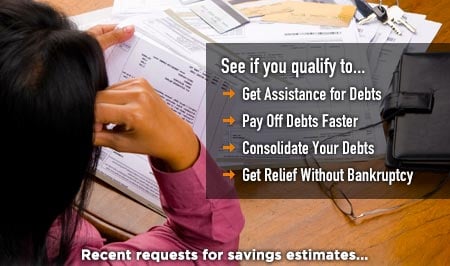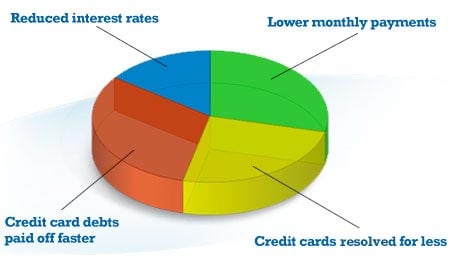
Consumer Credit Counseling - New York
If finding a proven way to get relief from your debts is a serious concern, and you have been considering consumer credit counseling, you are in good company. Many consumers these days find that debts can sometimes add up quickly when finances are tight and one has to use credit cards to buy daily essentials like food and pay for utilities. Or, debts just accumulate over time, maybe as a result of too many impulse buys.
If you are also experiencing financial distress and are falling behind on your credit card debts, you may be interested in finding out how you can find relief by consolidating your debts through consumer credit counseling.
Typically, debt consolidation (also known as a debt management plan or a DMP) allows you to make one, consolidated and manageable payment to a credit counseling agency. The goal with debt consolidation is, with a more structured and more affordable repayment plan, you can ideally reduce your debts sooner than if you only continued to make the minimum payments at higher interest rates.
In addition, many consumers consider debt consolidation to be a popular alternative to bankruptcy, which is also a form of debt relief, but one that has a more damaging and longer lasting consequence on personal credit.
Find out if you qualify for savings with a free debt relief analysis and savings estimate by answering just a few, simple questions. Start here.
What Is Consumer Credit Counseling?
Debt consolidation through credit counseling, or DMP, is a proven and legal way for many consumers to get relief from credit card debts and other types of unsecured debts - such as medical bills, department store charges, or utilities. Before choosing a credit counseling service, it is wise to have a good understanding of how it works, and how it can potentially help you reduce the total amount of your credit card and unsecured debts.
Facilitated by credit counselors, debt consolidation generally begins with a thorough assessment of your financial situation - taking into account your income, outstanding financial obligations, and other assets (if any). Once credit counselors have a clear picture of your finances, they will typically develop a strategy to help you pay off your debts sooner than if you only continued to make the minimum payments at higher interest rates.
When they have a game plan in mind, they will generally submit proposals to credit card companies, on your behalf, requesting lower interest rates, and waiver of late fees and other penalties. Creditors that accept the proposals are added to the debt management plan. Credit counseling agencies, in turn, distribute those funds to creditors that are in the plan.
How Can You Potentially Benefit with Credit Counseling?
As mentioned earlier, the goal of debt consolidation through credit counseling is to provide you, the consumer, with a single, more structured, and more lenient repayment plan that can, ideally, help you direct more of your payment into paying off the principal on your credit cards versus just the interest. Aside from requesting proposals to your creditors, reputable credit counseling agencies may even provide you a due date (or the time funds are taken from your account) that takes into consideration when you get paid.
The bottom line is, credit counseling is a form of debt relief that allows many individuals a way to manage and reduce higher debts and payments without seriously damaging their credit history - the way that bankruptcy typically would.
That's why it makes sense to find out how much savings you can potentially get through credit counseling and find out how you can finally get your financial life back on track. Start by clicking here for a free debt relief analysis and savings estimate.





















